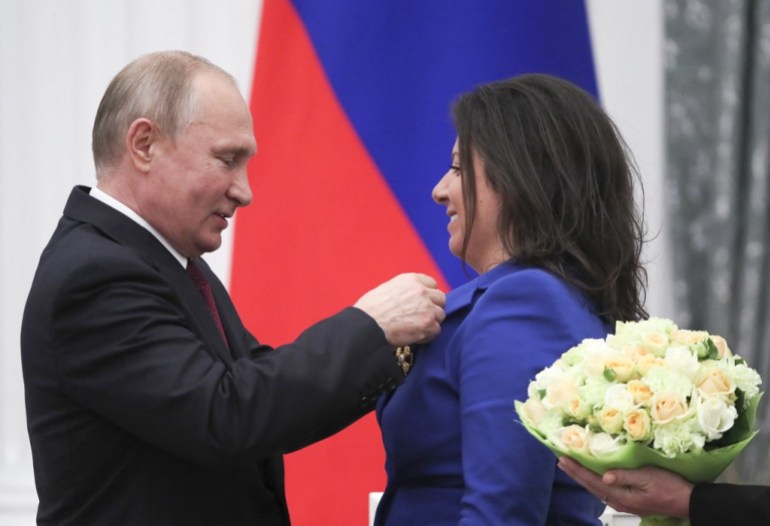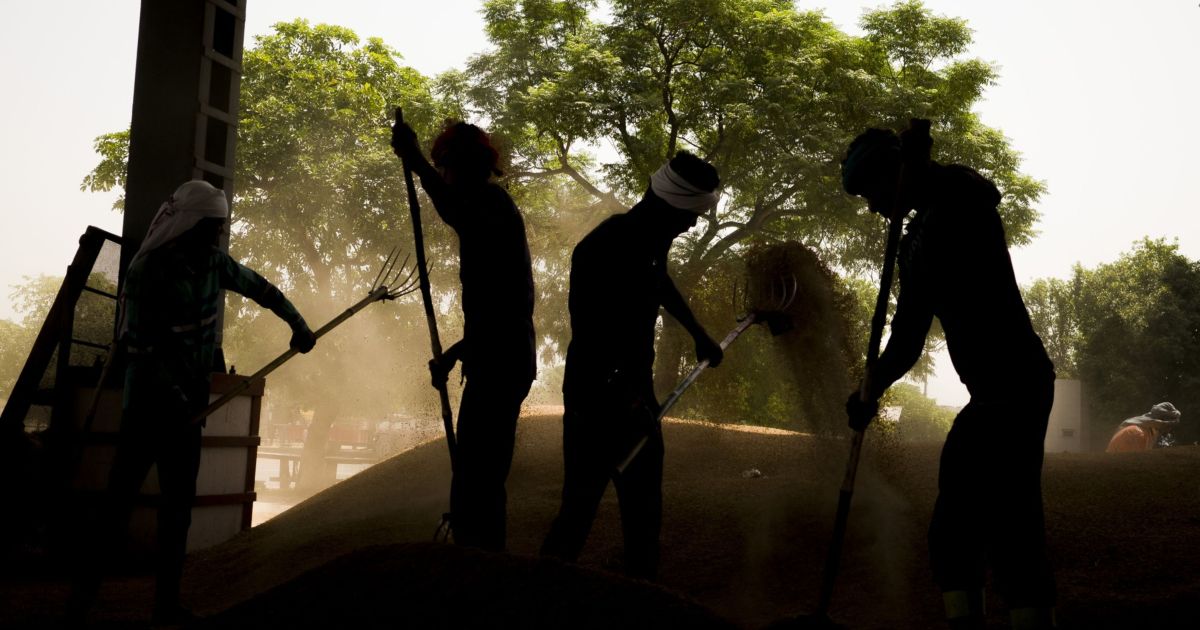Germany bans German-language Russian state broadcaster RT | Media News
The German broadcasting regulator has banned the transmission of the German-language channel of Russian state broadcaster RT, amid rising tensions between Moscow and the West.
The transmission of the channel “RT DE” was “prohibited because it does not have the necessary broadcasting licence”, the regulator’s authorisation and oversight commission said in a statement on Wednesday.
The broadcaster was blocked from Europe’s satellite network on December 22 at the request of German authorities, less than a week after going on air, but was still available over the internet and via a mobile app.
In response to the earlier decision, RT DE said its suspension was “illegal” and the result of political pressure from Berlin, at a time of diplomatic tensions between Germany and Russia.
 Russia’s President Vladimir Putin awards the “Order of Alexander Nevsky” to Russian broadcaster RT’s editor-in-chief Margarita Simonyan [File: Evgenia Novozhenina/pool via AFP]
Russia’s President Vladimir Putin awards the “Order of Alexander Nevsky” to Russian broadcaster RT’s editor-in-chief Margarita Simonyan [File: Evgenia Novozhenina/pool via AFP]The channel said it has headquarters in Moscow, and has pointed to a Serbian licence for cable and satellite transmission, which RT says allows it to be broadcast in Germany.
However, the regulator said the channel’s operator, based in Berlin, does not have a “legitimate permit under European law”.
Russia Today
Launched in 2005 as “Russia Today”, state-funded RT has expanded with broadcasters and websites in languages including English, French, Spanish and Arabic.
It has been accused by Western countries of distributing disinformation and Kremlin-friendly propaganda.
It has generated controversy in many countries, including the United States, where it was required to register as a “foreign agent”, and in the UK, where authorities have threatened to revoke its broadcasting licence.
The channel has been banned in several countries, including the ex-Soviet republics of Lithuania and Latvia.




